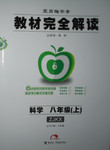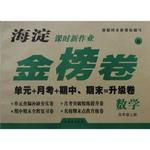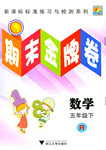
阅读理解
Phone books have white,blue and yellow pages. The white pages list people with phones by last name. The blue pages contain numbers of city services,government services and public schools. Business and professional services are listed in a special directory-the Yellow pages.
The area covered by one area code may be small or large. For example,New York City has one code area,but so does the whole state of Oregon. There is an area code of the map of the US and Canada in the front of the white pages.
Pay phones have numbers in the US. This means you can call a friend at a phone booth (电话亭). Or if you are making a long distance call and run out of money,give the number on your phone to the person you're talking to. Then hang up the receiver and they can call you back.
If you make a long distance call and get a wrong number,call the operator and explain what happened.This means that you can make the call again to the right number without having to pay more money;or you can have the phone company mail you a credit coupon that has the same value as the phone call.
Some companies advertise a service called WATS. You can dial a special number without a long distance charge. These are called “toll-free numbers” and the area code for all of them is 800. WATS means Wide Area Telephone Service.
(1)In the yellow pages,you can find a list of _________.
[ ]
A.people with phones
B.public schools
C.professional services
D.city services
(2)You can find an area code map _________.
[ ]
A.in the white pages
B.in the yellow pages
C.in the blue pages
D.in all the pages above
(3)If you run out of money when making a long distance call,________.
[ ]
A.you can tell the one on the phone your phone number and wait to be called back
B.you can tell the one on the phone your number,hold on and wait to be called back
C.you must hang up and stop making any calls
D.you have to run out and borrow some money
(4)A credit coupon ________.
[ ]
A.is used to buy a phone
B.has no value at all
C.has more value than the phone call
D.has the same value as the phone call
(5)The underlined phrases “toll-free numbers” means ________.
[ ]
A.an area code
B.a telephone service
C.a free long distance call
D.WATS
 王后雄学案教材完全解读系列答案
王后雄学案教材完全解读系列答案 海淀课时新作业金榜卷系列答案
海淀课时新作业金榜卷系列答案 期末金牌卷系列答案
期末金牌卷系列答案科目:高中英语 来源:典中点综合应用创新题高二英语 题型:050
阅读理解训练
James Cleveland Owens was the son of a farmer and the grandson of black slaves. His family moved to Cleveland when he was 9. There, a school teacher asked the youth his name.
“J.C.,”he replied.
She thought he had said “Jesse”, and he had a new name.
Owens ran his first race at age 13. After high school, he went to Ohio State University, He had to work part time so as to pay for his education. As a second-year student, in the Big Ten games in 1935. he set even more records than he would in the Olympic Games a year later.
A week before the Big Ten meet, Owens accidentally fell down a flight of stairs. His back hurt so much that he could not exercise all week, and he had to be helped in and out of the car that drove him to the meet. He refused to listen to the suggestions that he give up and said he would try, event by event. He did try, and the results are in the record book.
The stage was set for Owens' victory at the Olympic Games in Berlin the next year, and his success would come to be regarded as not only athletic(体育的) but also political. Hitler did not congratulate any of the African-American winners.
“It was all right with me,”he said years later. “I didn't go to Berlin to shake hands with him, anyway.”
Having returned from Berlin, he received no telephone call from the president of his own country, either. In fact, he was not honored by the United States until 1976, four years before his death.
Owens' Olympic victories made little difference to him. He earned his living by looking after a school playground, and accepted money to race against cars, trucks, motorcycles, and dogs.
“Sure, it bothered (烦忧) me,”he said later.“But at least it was an honest living. I had to eat.”
In time, however, his gold medals (奖牌) changed his life.“They have kept me alive over the years,”he once said. “Time has stood still for me. That golden moment dies hard.”
1.Owens got his other name “Jesse” when ________.
[ ]
A.he went to Ohio State University
B.his teacher made fun of him
C.his teacher took “J.C” for “Jesse”
D.he won gold medals in the Big Ten meet
2.In the Big Ten meet, Owens ________.
[ ]
A.hurt himself in the back
B.succeeded in setting many records
C.tried every sports event but failed
D.had to give up some events
3.We can infer from the text that Owens was treated unfairly in the US at that time because ________.
[ ]
A.he was not of the right race
B.he was the son of a poor farmer
C.he didn't shake hands with Hitler
D.he didn't talk to the US president on the phone
4.When Owens says “They have kept me alive over the years, ”he means that the medals ________.
[ ]
A.have been changed for money to help him live on
B.have made him famous in the US
C.have encouraged him to overcome difficulties in life
D.have kept him busy with all kinds of jobs
5.Which of the following is a suitable title for the text?
[ ]
A.Jesse Owens, a Great American Athlete
B.Golden Moment a Life time Struggle
C.Making a Living as a Sportsman
D.How to Be a Successful Athlete?
查看答案和解析>>
科目:高中英语 来源: 题型:053
阅读理解训练
Time talks. It speaks more plainly (明白地) than words. Time communicates(交流)in many ways.
Consider the different parts of the day, for example. The time of the day when something is done can give a special meaning to the event. Factory managers in the United States fully realize the importance of an announcement made during the middle of the morning or afternoon that takes everyone away from his work.
In the United States . it is not customary(通常的,习惯的) to telephone someone very early in the morning. If you telephone him early in the day, while he is shaving (刮脸) or having breakfast, the time of the call shows that the matter is very urgent (紧急的) and requires immediate attention. It is the same with telephone calls made after 11:00 p. m. If someone receives a call during sleeping hours, he probably thinks it is a matter of life or death. The time chosen for the call communicates its importance.
The meanings of time differ in different parts of the world. Thus, misunderstanding arises (出现) between people from cultures (文化) that treat time differently . In the United States, people tend (趋向于) to think of time as something fixed in nature, something from which one can not escape. As a rule, .Americans think of time as a road into the future, along which one progresses. The road has many sections (段) , which are to be kept separate… “one thing at a time” . Thus, an American may feel angry when he has made an appointment (约会) with someone and then finds a lot of other things happening at the same time.
Americans look ahead and are concerned(与……有关系) almost entirely with the future. The American idea of the future is limited, however. It is the foreseeable future and not the future of involving (牵连) many centuries. Since time has much different meanings in different cultures, communication is often difficult. We will understand each other a little better if we can keep this fact in mind.
(1) According to the passage, an announcement made during the day in a factory must be very important because ____.
[ ]
A.it interrupts the work of all employees
B.it is made by the manager
C.it makes everyone lose his job
D.it communicates in many ways
(2) In the United States, a phone call made after 11:00 p. m. is considered ________ in the view of the writer.
[ ]
A.as important as one made in the morning
B.impolite since it disturbs the receiver's sleep
C.to be a threat (恐吓) to the receiver's life
D.even more urgent than one made early in the morning.
(3) An .American may feel angry if ________.
[ ]
A.he is to deal with many things at one appointed time
B.people from different cultures misunderstand him
C.he cannot escape from something fixed in nature
D.others do not keep things separate
(4) The expression “the foreseeable future” could be most suitably replaced by ________.
[ ]
A.the future that will not be far away
B.the future that one looks forward to
C.the future toward which one makes progress
D.the future which involves centuries
(5) The writer concludes that people of different countries will understand each other better if ________ .
[ ]
A.they know how to communicate with each other
B.they are concerned with the future
C.they learn the way time communicates
D.they keep in mind that different cultures treat time differently
查看答案和解析>>
科目:高中英语 来源: 题型:053
阅读理解:
The word "hello" is probably used more often than any other one in the English language. Everybody in the United States and elsewhere uses the word, again and again, every day of the week.
The first thing you hear when you pick up the phone is "hello" unless the caller is an Englishman, who might say, "Are you there?"
Where did the word come from? There are all sorts of beliefs. Some say it came from the French, "ho" and "la" "Ho, there!" This greeting may have arrived in England during the Norman Conquest in the year 1066.
"Ho, there" slowly became something that sounded like "hallow", often heard in the 1300's, during the days of the English poet ,Geoffrey Chaucer.
Two hundred years later, in Shakespeare's time, "hallow" had become "halloo". And later, sounds like "halloa", and "halloo" were often used by sailors and huntsmen. "Halloo" is still used today by foxhunters.
As time passed, "halloo" and "halloa" changed into "hullo". And during the 1800's this was how people greeted each other in America.
The American inventor, Thomas Alva Edison, is believed to be the first person to use "hello" in the late 1800's, soon after the invention of the telephone.
At first, people had greeted each other on the telephone with "Are you there?" They were not sure the new instrument could really carry voices.
Tom Edison, however, was a man of few words. He wasted no time. The first time he picked up the phone he did not ask if anyone was there. He was sure someone was, and simply said, "Hello."
From that time on only about 100 years ago, the "hullo" became "hello", as it is heard today.
Strangely enough, when the first telephone system was put in New Haven, Connecticut, in 1878, people did not say "hello" or "hullo" or even "halloo". They answered the phone the way sailors hail a ship, "Ahoy, anoy there!" Thank God, that telephone greeting did not last long.
Of course, there are other ways Americans greet one another. Not long ago, people often said, "How are you ?" when they first met someone. This later became "hiyah". Then, someone thought that two syllables were too much and "hiyah" became "hi". Laziness is a strong force in changing language.
Answering a telephone call in America still presents problems, however. Telephone companies think that Thomas Edison's short "hello" is too long. Why waste time? The phone companies say. Simply pick up the phone, give your name, and start talking.
1.The word "hello" came from ______.
[ ]
A.an unknown origin B.old English
C.the German D.the French
2.The writer thinks that, if used on the telephone, "Ahoy" is a word that ______.
[ ]
A.sounds sincere
B.is pleasant to the ear
C.sounds sincere
D.sounds awkward and unsuitable
3.Expressions like "hello" and "hi" have entered the English language because short words ______.
[ ]
A.sound better
B.save the speakers time and energy
C.add varieties to the language
D.express the meaning more clearly
4.According to telephone companies, the best way to answer a telephone call is ______.
[ ]
A.to say "hello" to the caller
B.to say "hi" to the caller
C.to start talking immediately
D.to listen without saying anything
5.The topic sentence in the last but one paragraph is " ______ ."
[ ]
A.Of course, there are other ways Americans greet one another
B.Laziness is a strong force in changing language
C.Not long age, people often said, "How are you?" when they first met someone
D.Then, someone thought that two syllables were too much and "hiyah" became "hi"
查看答案和解析>>
科目:高中英语 来源:101网校同步练习 高三英语 人民教育出版社(新课标A 2002-3年初审) 人教版 题型:050
| |||||||||||||||||||||||||||||||||||||||||||||||||||||||||||||||||||||||||
查看答案和解析>>
科目:高中英语 来源:浙江省桐庐中学2008-2009学年高二下学期回头考英语试题 题型:050
| |||||||||||||||||||||||||||||||||||||||||||||
查看答案和解析>>
湖北省互联网违法和不良信息举报平台 | 网上有害信息举报专区 | 电信诈骗举报专区 | 涉历史虚无主义有害信息举报专区 | 涉企侵权举报专区
违法和不良信息举报电话:027-86699610 举报邮箱:58377363@163.com